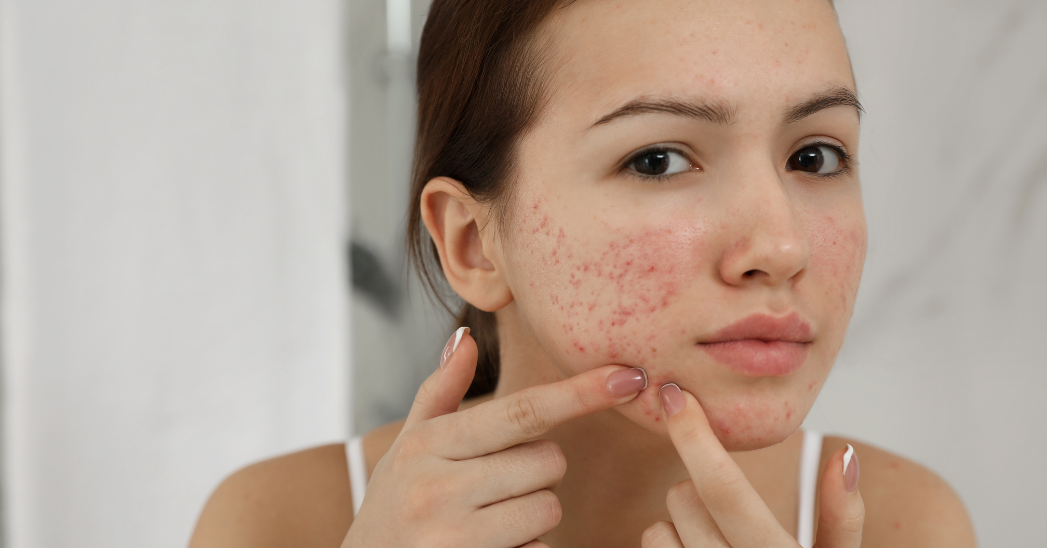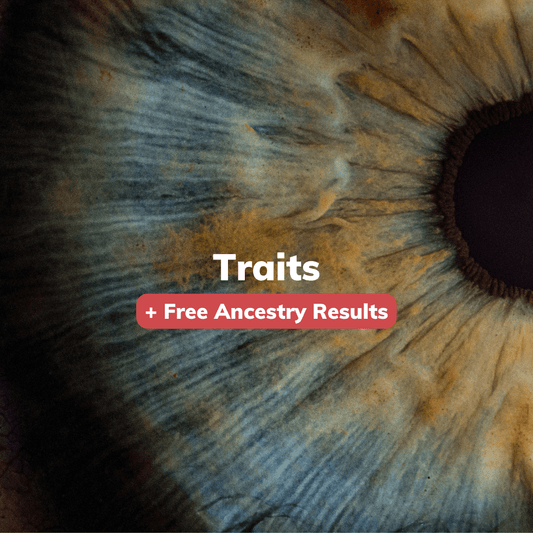
Acne causes and symptoms
Celine HaarhoffAcne is a common skin condition that affects people of all ages, but it is most common in teenagers and young adults. While many people are aware that certain lifestyle factors, such as poor hygiene and diet, can increase the risk of developing acne, few realize that genetics also significantly determine a person's predisposition to the condition.
Acne is caused by the overproduction of sebum, an oily substance produced by the sebaceous glands in the skin. When too much sebum is produced, it can clog pores and hair follicles, forming pimples, blackheads, and other types of acne lesions.
While genetics do not directly cause acne, they can influence a person's susceptibility to the condition. Studies have shown that certain genes are associated with an increased risk of developing acne.
For example, the gene for the hormone receptor that stimulates the sebaceous glands (SLCO1B1) has been linked to an increased risk of acne. Additionally, the gene for the enzyme that produces sebum (FASN) has also been associated with acne.
Symptoms of acne can vary depending on the type and severity of the condition. In general, symptoms may include:
- Blackheads: small, dark spots on the skin that occur when pores become clogged with oil and dead skin cells
- Whiteheads: small, white bumps on the skin that occur when pores become clogged with oil and dead skin cells
- Pimples: small, red bumps on the skin that are inflamed and filled with pus
- Cysts: large, painful bumps on the skin that are filled with pus and can cause scarring
Acne can be treated with a variety of over-the-counter and prescription medications, depending on the severity of the condition. However, because genetics play a role in determining a person's susceptibility to acne, it can be helpful to understand one's genetic risk of developing the condition. This is where a genetic test can be useful.
The test results can provide valuable information about a person's genetic predisposition to acne, which can help individuals and their healthcare providers make informed decisions about the best course of treatment.
For example, a person with a high genetic risk of developing acne may be more likely to benefit from early intervention and more aggressive treatment. On the other hand, a person who has a low genetic risk of developing acne may be able to manage their condition with more conservative treatment options.
In conclusion, genetics play a significant role in determining a person's susceptibility to acne. A genetic test can provide valuable information about a person's genetic predisposition to the condition, which can help individuals and their healthcare providers make informed decisions about the best course of treatment. Individuals can take steps to prevent or manage the condition by understanding their genetic risk of developing acne and improving their overall skin health.


